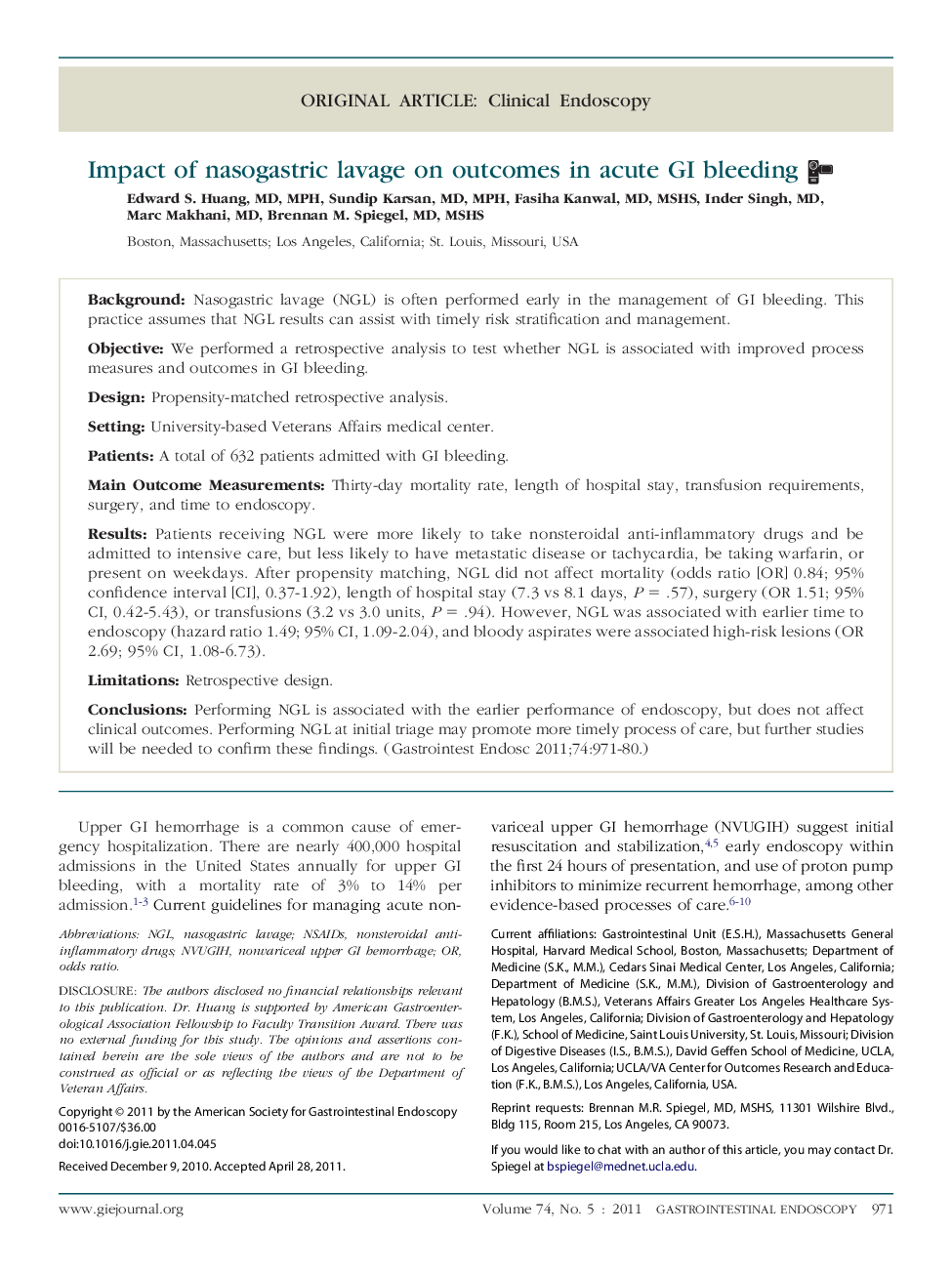| Article ID | Journal | Published Year | Pages | File Type |
|---|---|---|---|---|
| 3305351 | Gastrointestinal Endoscopy | 2011 | 10 Pages |
BackgroundNasogastric lavage (NGL) is often performed early in the management of GI bleeding. This practice assumes that NGL results can assist with timely risk stratification and management.ObjectiveWe performed a retrospective analysis to test whether NGL is associated with improved process measures and outcomes in GI bleeding.DesignPropensity-matched retrospective analysis.SettingUniversity-based Veterans Affairs medical center.PatientsA total of 632 patients admitted with GI bleeding.Main Outcome MeasurementsThirty-day mortality rate, length of hospital stay, transfusion requirements, surgery, and time to endoscopy.ResultsPatients receiving NGL were more likely to take nonsteroidal anti-inflammatory drugs and be admitted to intensive care, but less likely to have metastatic disease or tachycardia, be taking warfarin, or present on weekdays. After propensity matching, NGL did not affect mortality (odds ratio [OR] 0.84; 95% confidence interval [CI], 0.37-1.92), length of hospital stay (7.3 vs 8.1 days, P = .57), surgery (OR 1.51; 95% CI, 0.42-5.43), or transfusions (3.2 vs 3.0 units, P = .94). However, NGL was associated with earlier time to endoscopy (hazard ratio 1.49; 95% CI, 1.09-2.04), and bloody aspirates were associated high-risk lesions (OR 2.69; 95% CI, 1.08-6.73).LimitationsRetrospective design.ConclusionsPerforming NGL is associated with the earlier performance of endoscopy, but does not affect clinical outcomes. Performing NGL at initial triage may promote more timely process of care, but further studies will be needed to confirm these findings.
